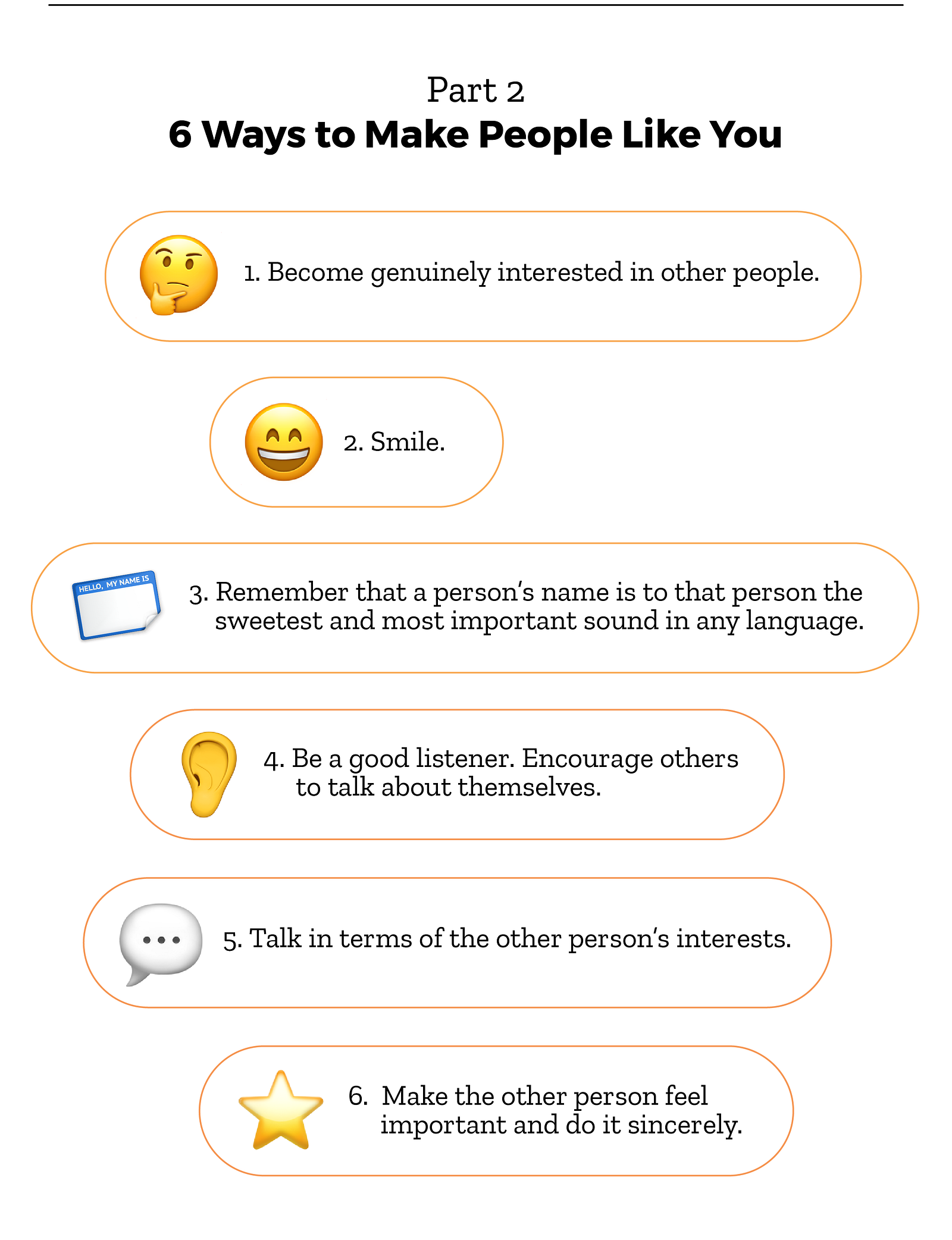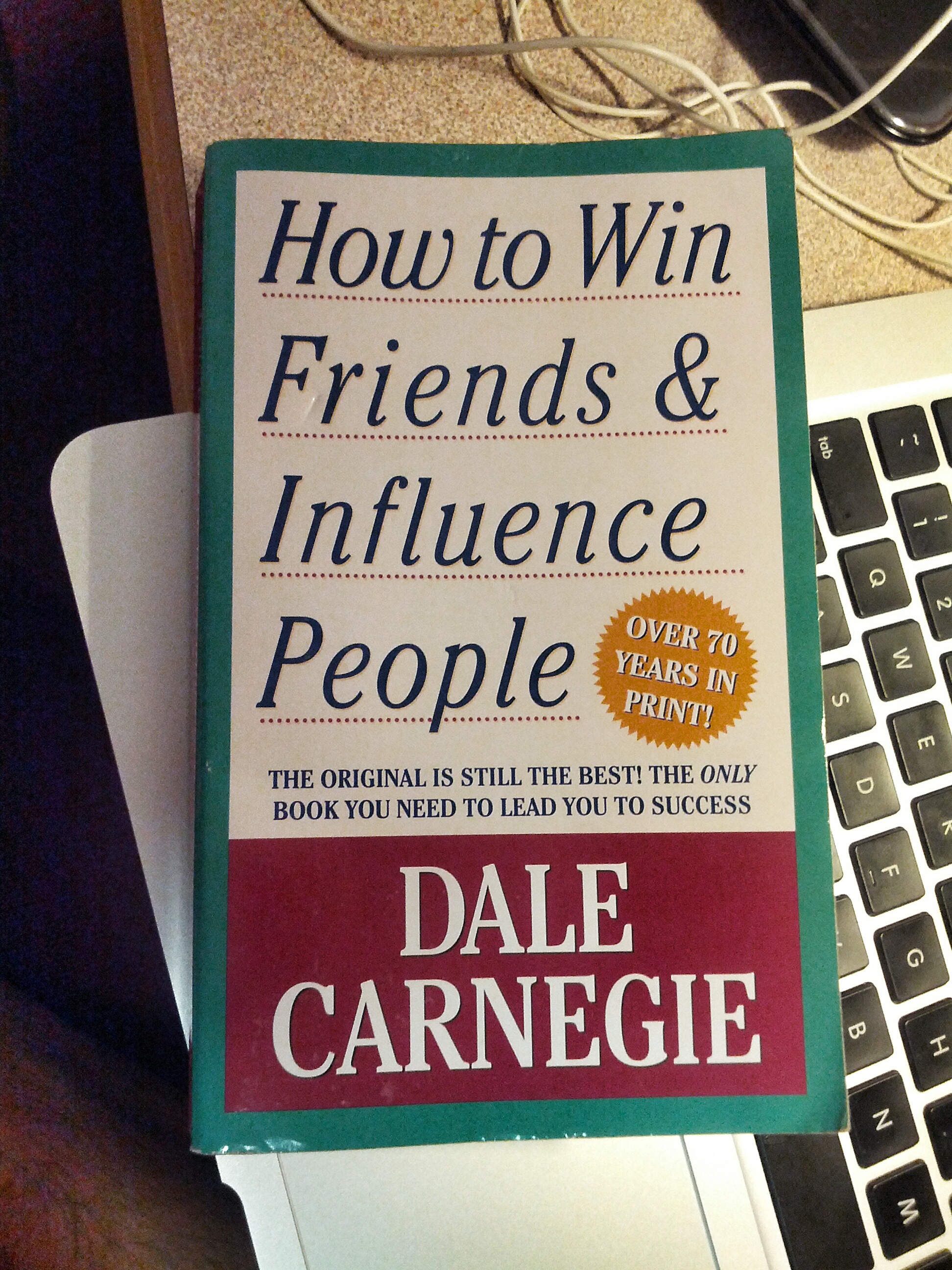How Make Friends And Influence People
Warren Buffett credits Dale Carnegie's lessons to helping him stop being socially awkward. Paul Morigi/Getty Images. Berkshire Hathaway CEO Warren Buffett credits Dale Carnegie's teachings with transforming his life. Buffett studied Carnegie's book 'How to Win Friends & Influence People' when he was 15. Its main principles focus on persuading people through charm and confidence rather than aggression. When Warren Buffett was 15 years old, he found a copy of Dale Carnegie's ' on his grandfather's bookshelf.
As Alice Schroeder writes in her biography of the billionaire investor, ',' Buffett was having difficulty fitting in at high school, and so the title was too much to resist. He began experimenting with Carnegie's techniques, and though Buffett certainly didn't shed his social awkwardness overnight, he found that all of the book's advice worked for him and ingrained it within himself. Several years later, at the start of his career, he would take a that trained him to overcome his fear of public speaking and become a better communicator using Carnegie's principles. To this day, the Carnegie class diploma is the only one of Buffett's hanging in his office. He said in the HBO documentary 'Becoming Warren Buffett,' that he credits with transforming his life. 'How to Win Friends & Influence People' was published in 1937 and contains some dated language and references.
While nothing in it is radical, its fundamental insights are just as applicable today as it they were during the Great Depression or when a young, insecure Buffett picked up a copy. We've summarized some of its main lessons on how to be a likable, persuasive, and influential leader. Avoid criticizing, condemning, or complaining 'Any fool can criticize, condemn, and complain — and most fools do,' Carnegie wrote. 'But it takes character and self-control to be understanding and forgiving.'
Feb 06, 2018 If you are having trouble networking or making new friends, these 10 principles from Dale Carnegie's 'How To Win Friends And Influence People' can help you. How to Win Friends and Influence People is just as useful. Make friends quickly and easily. Increase your popularity. Win people to your way of thinking. How to Win Friends and Influence People This is Dale Carnegie's summary of his book, from 1936. Table of Contents. Six ways to make people like you.
Carnegie explained that those in leadership positions should acknowledge when a subordinate is not meeting expectations or when a competitor's approach is inferior to their own, but do so in a way that acknowledges what is working, avoiding resentment and encouraging improvement. Praise others' achievements 'Abilities wither under criticism; they blossom under encouragement,' Carnegie wrote. Be lavish with praise, but only in a genuine way, he advised. 'Remember, we all crave appreciation and recognition, and will do almost anything to get it,' he said.
'But nobody wants insincerity. Nobody wants flattery.' Be empathetic Carnegie wrote that 'the only way on earth to influence other people is to talk about what they want and show them how to get it.' He referred to a quote by Ford Motor Company founder Henry Ford: 'If there is any one secret of success, it lies in the ability to get the other person's point of view and see things from that person's angle as well as from your own.' Know the value of charm Steel magnate Charles Schwab claimed his smile was worth a million bucks — literally. 'And he was probably understating the truth,' Carnegie wrote.
'For Schwab's personality, his charm, his ability to make people like him, were almost wholly responsible for his extraordinary success; and one of the most delightful factors in his personality was his captivating smile.' Encourage people to talk about themselves Carnegie said most people loosen up even in tense situations if they start talking about what they know. Namely, themselves.

Listening closely to someone 'is one of the highest compliments we can pay anyone,' Carnegie wrote. Know when to use suggestions instead of direct orders Carnegie learned that the industrialist Owen D.
Young, rather than barking commands to his subordinates, would lead them along with suggestions ('You might consider this.' ) or questions ('Do you think this would work?' 'He always gave people the opportunity to do things themselves; he never told his assistants to do things; he let them do them, let them learn from their mistakes,' Carnegie wrote. Acknowledge your own mistakes The best leaders, Carnegie said, do not lionize themselves, appearing as if they were flawless. 'Admitting one's own mistakes — even when one hasn't corrected them — can help convince somebody to change his behavior,' Carnegie wrote. Buffett, here with his friend Bill Gates, has long been a confident speaker with a charming public personality.

Rick Wilking/Reuters 8. Respect others' dignity Whether leaders are giving employees a demotion or letting them go, they need to recognize that person's dignity and not humiliate them, Carnegie said. And even from a practical standpoint, he continued, it's in a leader's favor to remain on good terms with an employee who didn't work out, since it's possible they will cross paths, and may even work together, again. Don't try 'winning' an argument Even if you manage to tear apart someone else's argument, you don't actually achieve anything. Carnegie cited an old saying: 'A man convinced against his will/Is of the same opinion still.' If you're looking to actually persuade somebody, avoid an argument in the first place, he said.
Be friendly, no matter how angry the other person may be It's human nature to meet aggression with aggression. But, Carnegie said, you will be surprised what you can usually accomplish when you take the high road and maintain your composure while you continue trying to persuade them, expressing appreciation for their point of view. At the very least, the other side will embarrass themselves as you stay cool and collected.
Reach common ground as soon as possible 'Begin by emphasizing — and keep on emphasizing — the things on which you agree,' Carnegie wrote. 'Keep emphasizing, if possible, that you are both striving for the same end and that your only difference is one of method and not of purpose.' Get others to think your conclusion is their own No one can be forced to truly believe something, Carnegie wrote, and that's why the most persuasive people know the power of suggestions over demands. Carnegie said that you should plant a seed, and when that's blossomed, avoid the urge to take credit for it. This is an updated version of a story that ran on April 14, 2015.
How to Win Friends and Influence People by Dale Carnegie How to Win Friends and Influence People This is Dale Carnegie's summary of his book, from 1936 Table of Contents. Fundamental Techniques in Handling People.
Don't criticize, condemn or complain. Give honest and sincere appreciation. Arouse in the other person an eager want.
Six ways to make people like you. Become genuinely interested in other people. Remember that a person's name is to that person the sweetest and most important sound in any language. Be a good listener.
Encourage others to talk about themselves. Talk in terms of the other person's interests. Make the other person feel important - and do it sincerely. Win people to your way of thinking. The only way to get the best of an argument is to avoid it. Show respect for the other person's opinions. Never say, 'You're wrong.'

Read How To Make Friends And Influence People
. If you are wrong, admit it quickly and emphatically. Begin in a friendly way. Get the other person saying 'yes, yes' immediately.
Let the other person do a great deal of the talking. Let the other person feel that the idea is his or hers. Try honestly to see things from the other person's point of view. Be sympathetic with the other person's ideas and desires. Appeal to the nobler motives. Dramatize your ideas.
Throw down a challenge. Be a Leader: How to Change People Without Giving Offense or Arousing Resentment A leader's job often includes changing your people's attitudes and behavior. Some suggestions to accomplish this:. Begin with praise and honest appreciation. Call attention to people's mistakes indirectly.
Talk about your own mistakes before criticizing the other person. Ask questions instead of giving direct orders. Let the other person save face. Praise the slightest improvement and praise every improvement. Be 'hearty in your approbation and lavish in your praise.' . Give the other person a fine reputation to live up to.
Use encouragement. Make the fault seem easy to correct. Make the other person happy about doing the thing you suggest. Back to the, and.